Abstract
The number of different ways of linking stimuli in the training phase of a conditional discrimination procedure designed to teach equivalence relations has hitherto been underestimated. An algorithm from graph theory that produces the correct number of such different ways is given. The establishment of equivalence relations requires transitive stimulus control. A misconception in a previous analysis of the conditions necessary for demonstrating transitive stimulus control is indicated. This misconception concerns responding in an unreinforced test trial to a negative rather than a positive comparison stimulus. Such behavior cannot be attributed to discriminative control by degree of association with reinforcement if the negative comparison stimulus has been less associated with reinforcement than the positive comparison stimulus in an antecedent training phase.
Keywords: stimulus equivalence, transitive stimulus control, training cluster, graph theory, conditional discrimination
Full text
PDF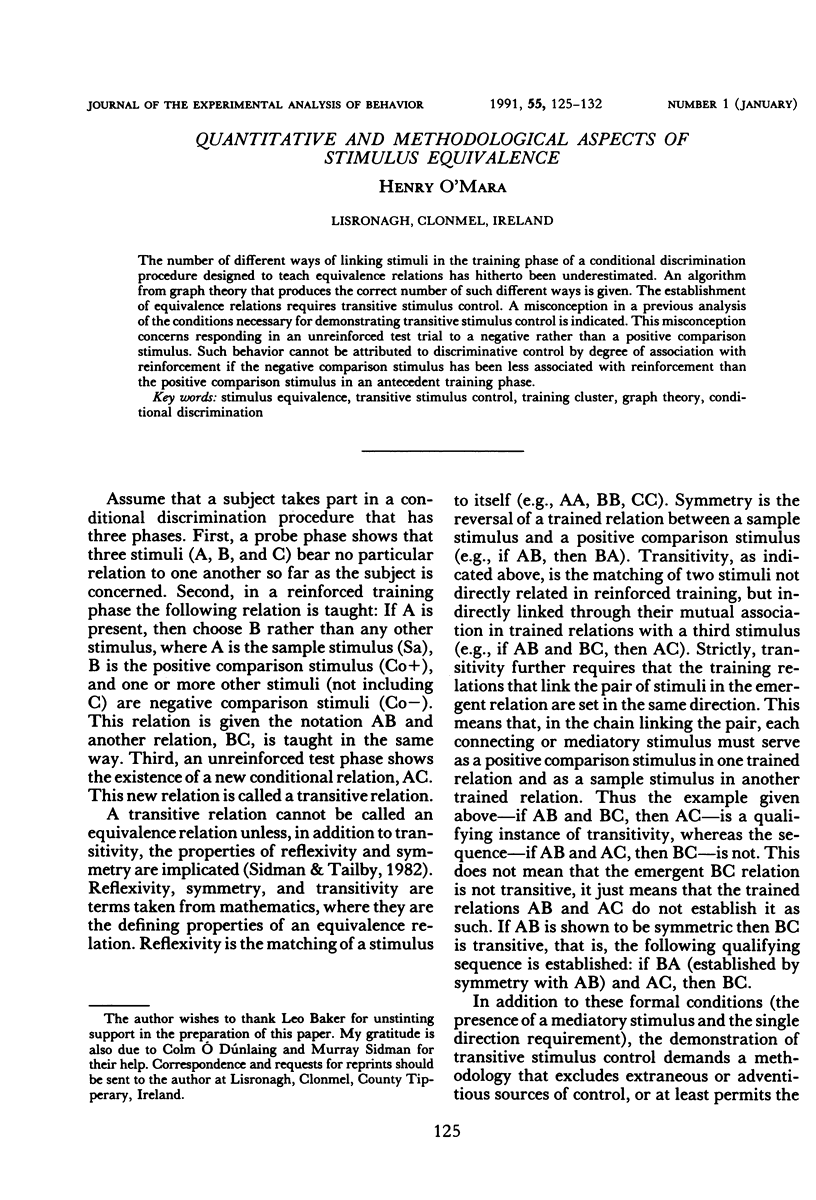
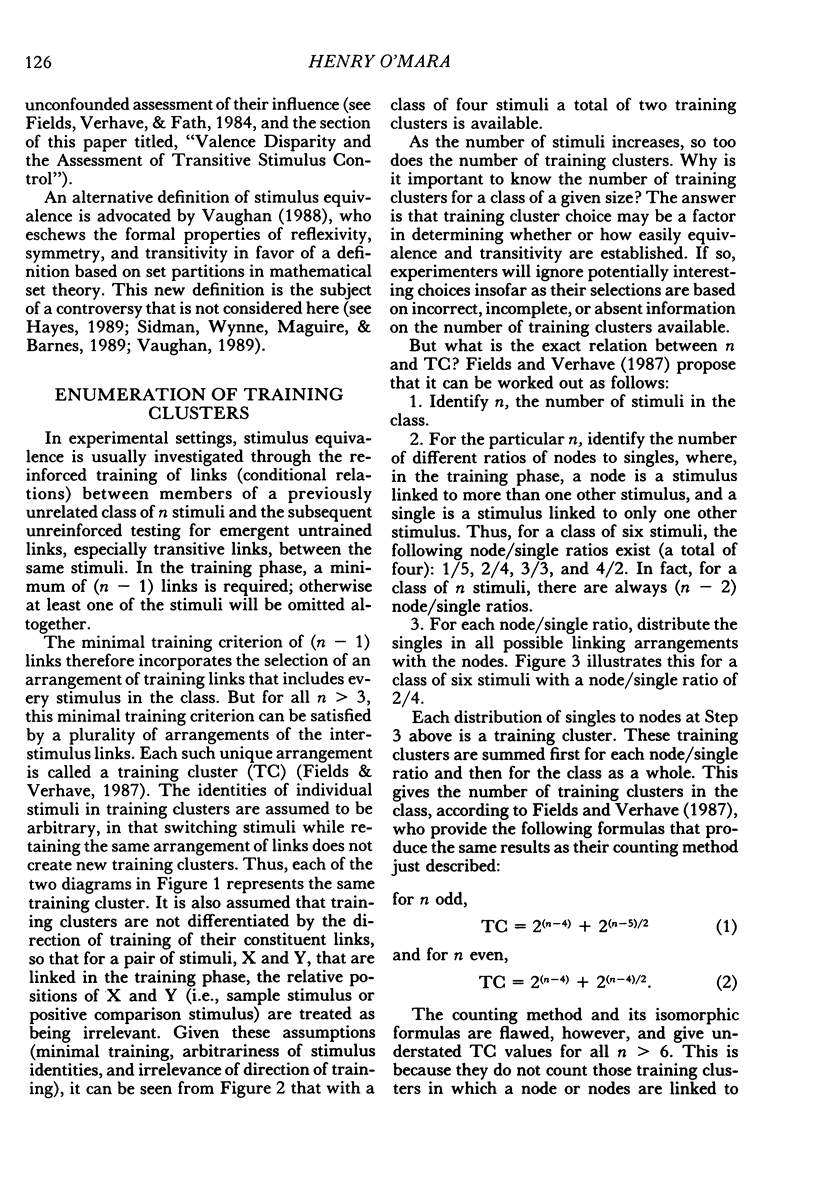
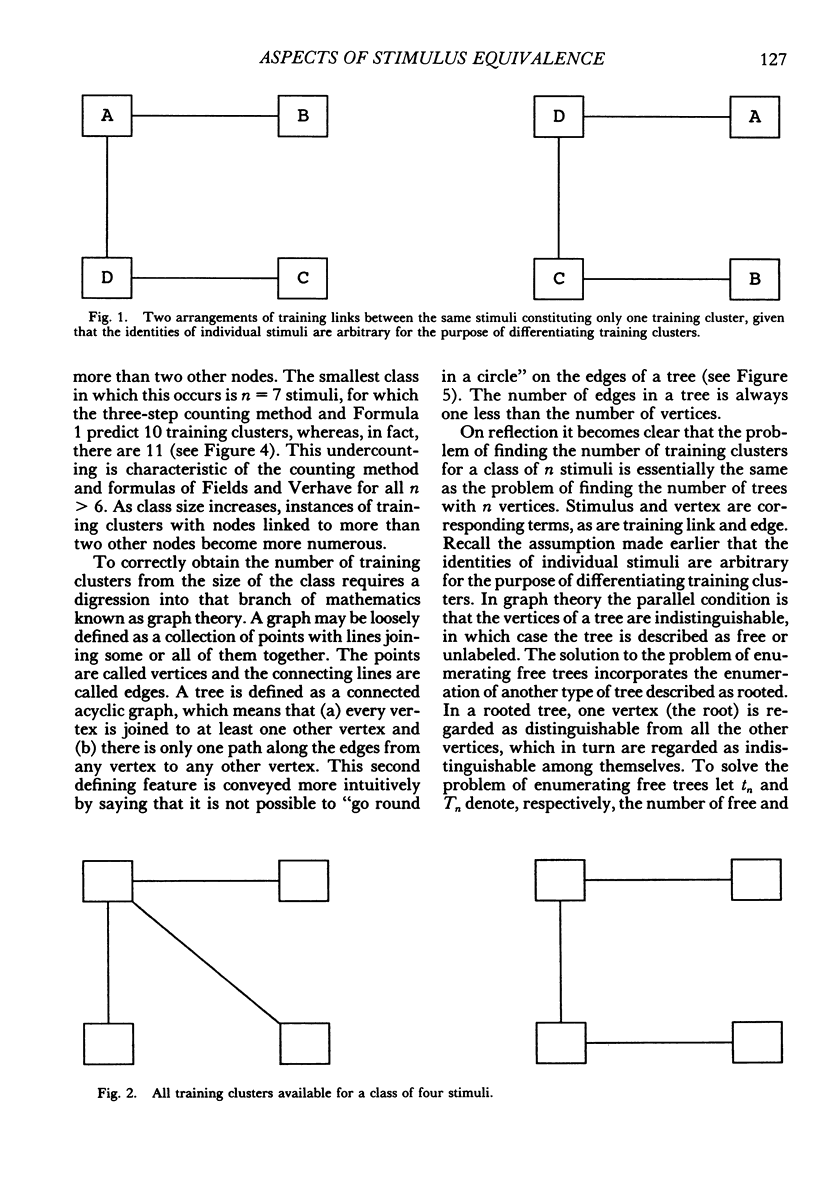
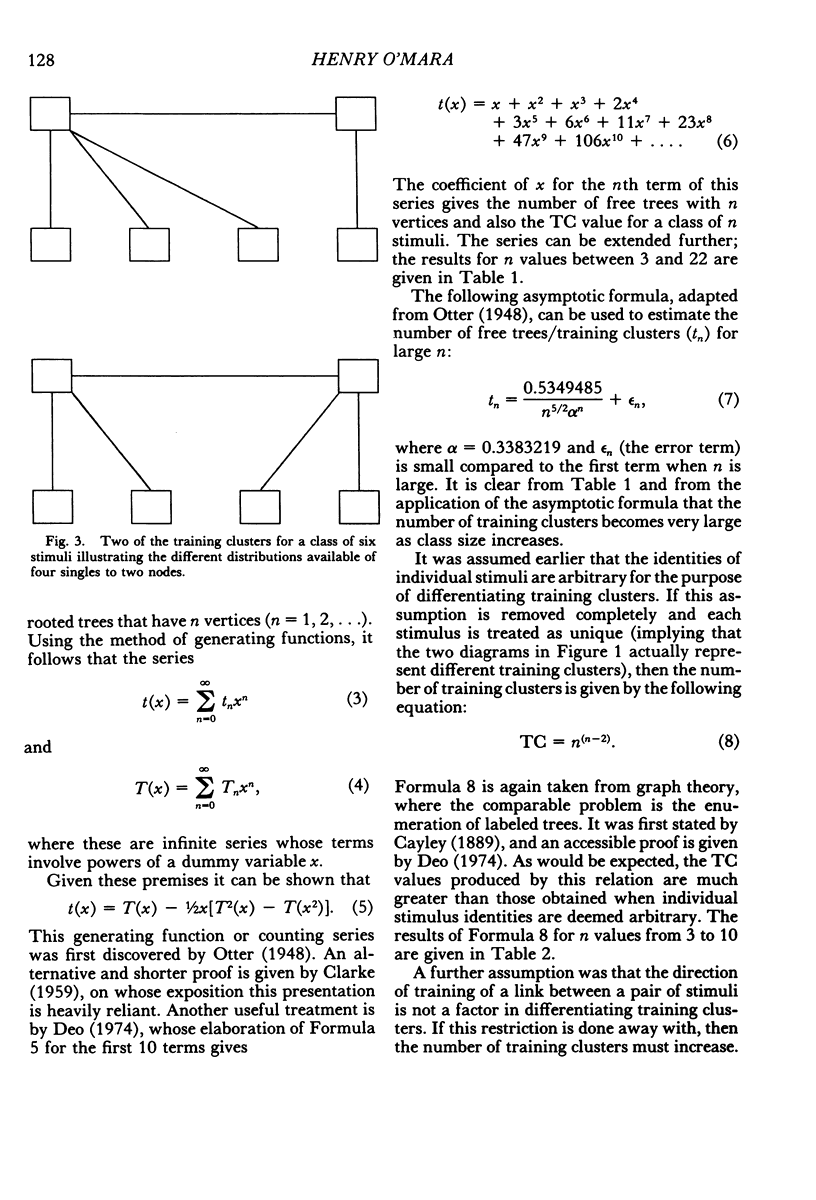
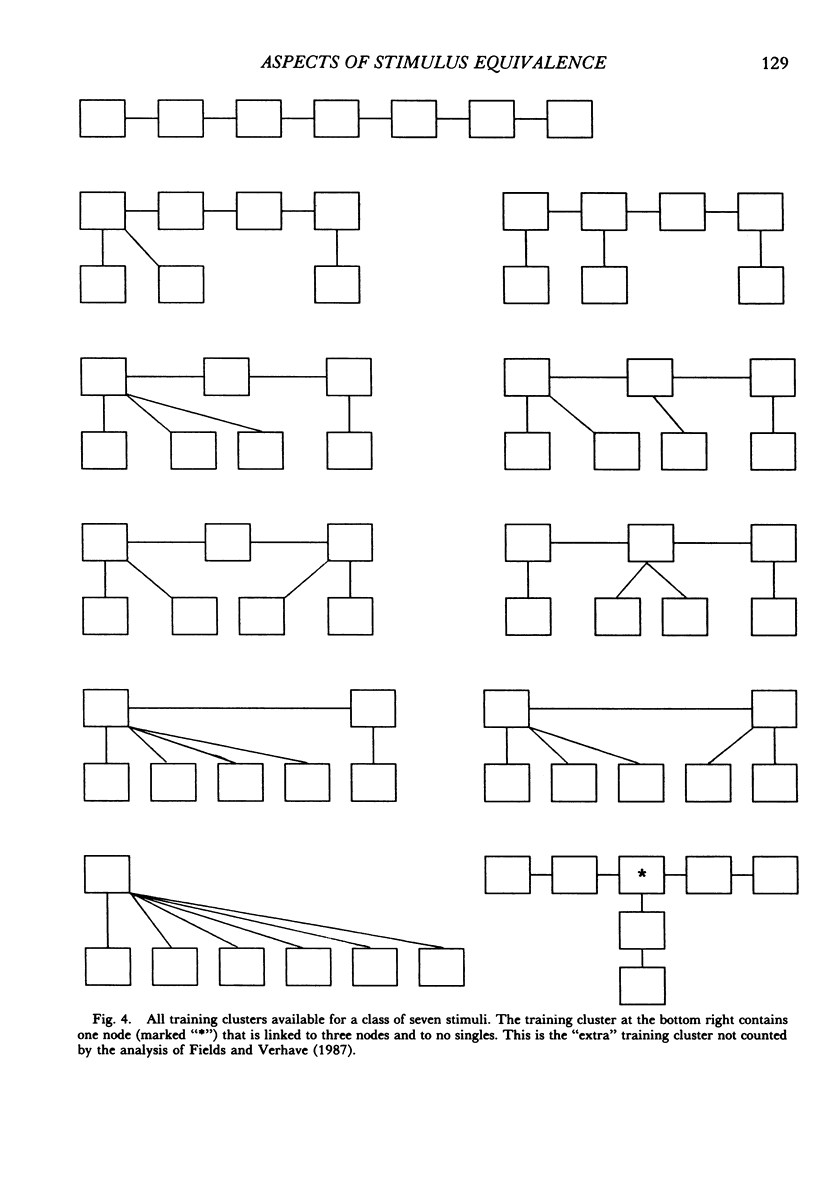
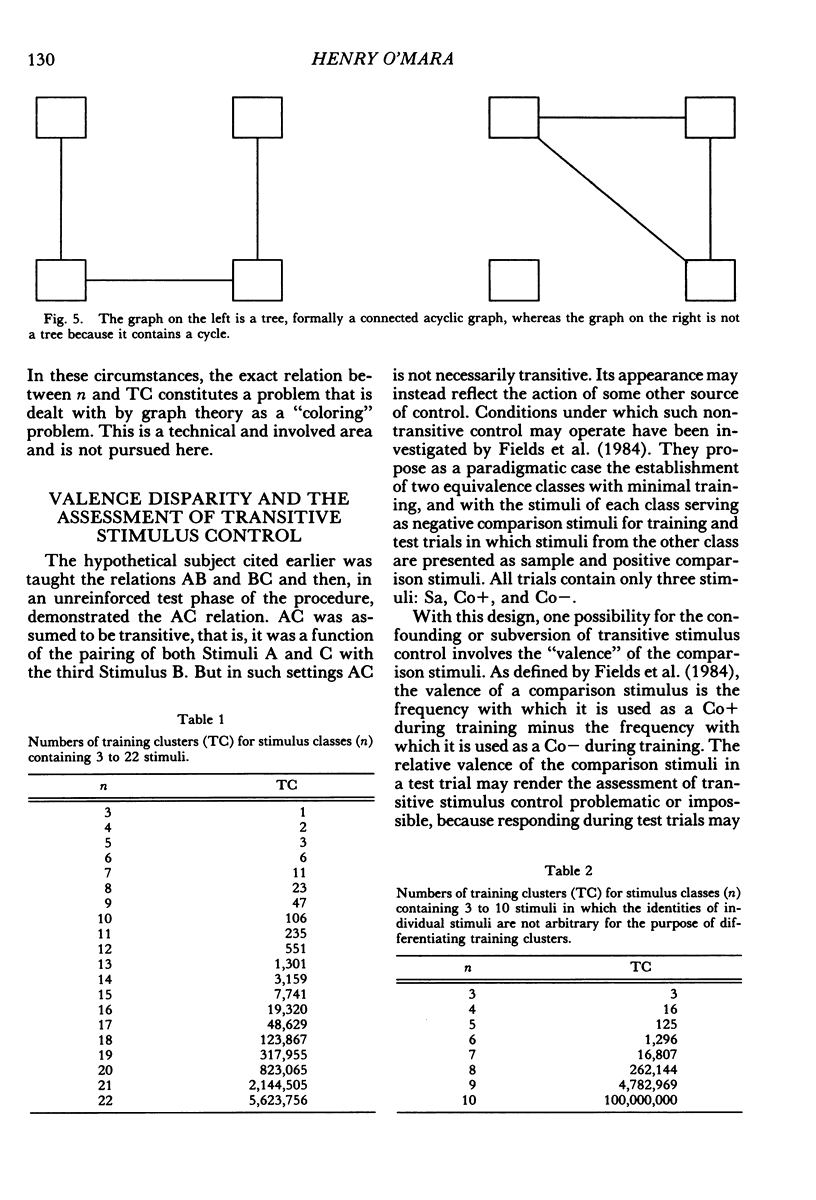
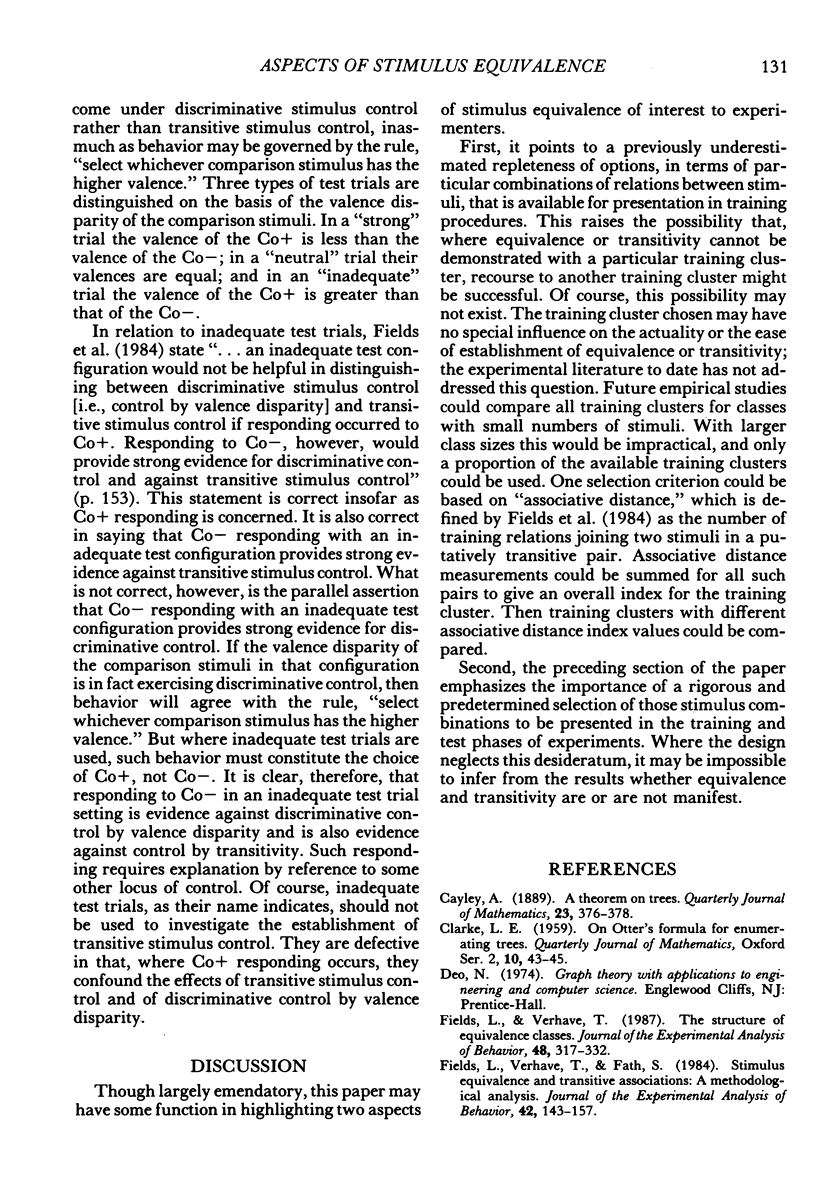
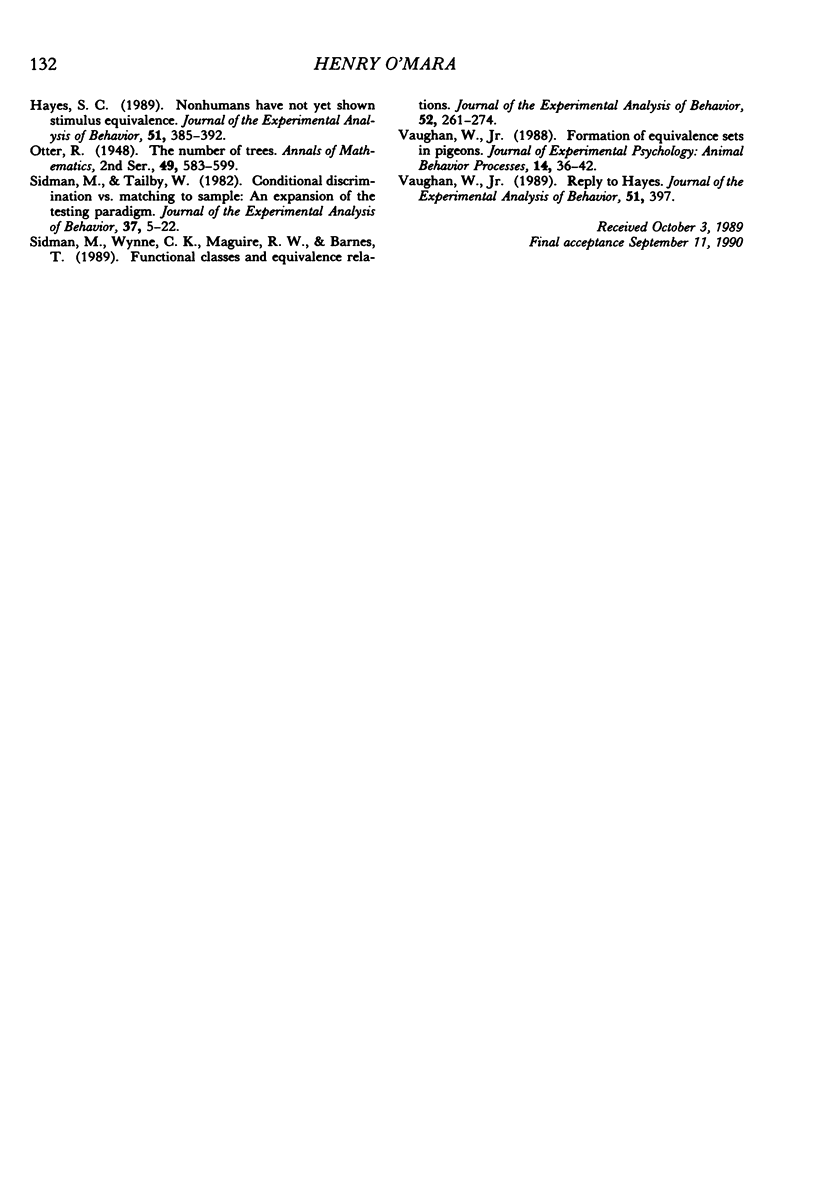
Selected References
These references are in PubMed. This may not be the complete list of references from this article.
- Fields L., Verhave T., Fath S. Stimulus equivalence and transitive associations: A methodological analysis. J Exp Anal Behav. 1984 Jul;42(1):143–157. doi: 10.1901/jeab.1984.42-143. [DOI] [PMC free article] [PubMed] [Google Scholar]
- Fields L., Verhave T. The structure of equivalence classes. J Exp Anal Behav. 1987 Sep;48(2):317–332. doi: 10.1901/jeab.1987.48-317. [DOI] [PMC free article] [PubMed] [Google Scholar]
- Hayes S. C. Nonhumans have not yet shown stimulus equivalence. J Exp Anal Behav. 1989 May;51(3):385–392. doi: 10.1901/jeab.1989.51-385. [DOI] [PMC free article] [PubMed] [Google Scholar]
- Sidman M., Tailby W. Conditional discrimination vs. matching to sample: an expansion of the testing paradigm. J Exp Anal Behav. 1982 Jan;37(1):5–22. doi: 10.1901/jeab.1982.37-5. [DOI] [PMC free article] [PubMed] [Google Scholar]
- Sidman M., Wynne C. K., Maguire R. W., Barnes T. Functional classes and equivalence relations. J Exp Anal Behav. 1989 Nov;52(3):261–274. doi: 10.1901/jeab.1989.52-261. [DOI] [PMC free article] [PubMed] [Google Scholar]
- Vaughan W. Reply to hayes. J Exp Anal Behav. 1989 May;51(3):397–397. doi: 10.1901/jeab.1989.51-397. [DOI] [PMC free article] [PubMed] [Google Scholar]


